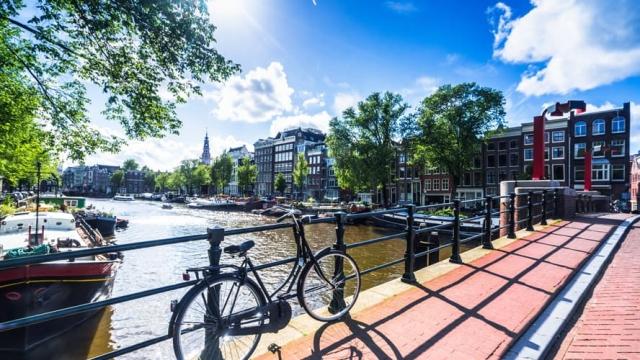2020 was a year of historic success for special-purpose acquisition companies (SPACs) in the United States. Due to market volatility caused by the COVID-19 pandemic, companies going public looked for faster, more risk-averse alternatives to IPOs—and increasingly turned to SPACs.
Now, the SPAC craze is hitting Europe, with Amsterdam emerging as the continent’s epicenter for deals. Read on to learn how SPACs in Europe differ from those in the US, why Amsterdam is the ideal capital for European SPAC activity, and one way that sellers maximize their appeal prior to being acquired by a SPAC.
What is a SPAC—and Why Did They Flourish in 2020?
SPACs, also known as blank check companies, use money raised from investors to pursue and acquire other companies. As SPACs do not offer services or conduct any business operations themselves, they exist solely as a vehicle to pursue target acquisitions.
SPACs offer several advantages over IPOs for companies looking to go public:
- Speed: The SPAC acquisition process is far faster than the IPO process, which takes up to six months and can require years of planning.
- Value: Companies selling to a SPAC can boost their sale price by up to 20% when compared to a private equity (PE) deal.
- Stability: SPACs are headed by investors with strong expertise in the business sector of the companies they are acquiring. By selling to a small group of experts rather than individual investors in the larger market, companies limit the variables that influence their value.
SPACs have existed for decades but have significantly risen in popularity in recent years as companies looked to hedge against market volatility. In 2020, SPACs secured over $83 billion in funding, surpassing the approximately $67 billion raised by IPOs. The meteoric rise of SPACs in 2020 represents a staggering 512% increase from 2019, when the total SPAC deal value was about $13 billion.
The outlook for SPACs is strong in 2021 and beyond. Thanks to low interest rates, SPACs remain a low-risk option—especially considering investors can pull out before a merger. And because SPACs must use capital within two years of raising it, they will redirect 2020’s record-setting funds into the marketplace over the next two years. Goldman Sachs believes that SPACs could generate $300 billion in M&A activity in 2021 and 2022.
How SPACs Differ in the U.S. and Europe
U.S. companies generated the vast majority of SPAC activity in 2020. Europe had only three SPAC mergers generating a total deal value of $495 million last year.
Experts attribute the lag in SPAC activity to Europe’s regulatory environment, which is more restrictive than that of the U.S. “It is legally more difficult to set up a SPAC in Germany and in some parts of Europe,” says Joachim von der Goltz, Credit Suisses’s head of ECM Northern Europe.
Financial regulations in Europe also lead to less flexibility for investors, making SPACs a less appealing option. For example, U.S. investors are able to pull their money once their SPAC announces its target acquisition—a privilege not always guaranteed to backers of European SPACs.
Europe’s lesser-developed IPO market is another barrier to SPAC activity. Thanks to a lack of publicly-listed tech companies compared to the U.S., European dealmakers have a harder time valuing target acquisitions.
At the same time, SPACs have less access to venture capital funding. “The venture capital pool of money is much smaller in Europe than it is in the U.S., and the IPO market is very weak,” says Makram Azar, CEO of European tech SPAC Golden Falcon Acquisition Group. “Interesting and attractive companies don’t have the same access to capital as they do in the U.S., either in the private domain or on the public markets.”
Why Amsterdam Is Emerging as Europe’s SPAC Capital
Despite the challenges facing SPACs in Europe, activity is picking up in 2021—and Amsterdam is emerging as the region’s dealmaking epicenter.
The Netherlands is home to a regulatory environment similar to that of the U.S. As a result, investors have the freedom to retract their money once a SPAC announces a target acquisition. This flexibility is key to Amsterdam’s appeal, says Tim Stevens, a partner at international law firm Allen & Overy. “The Dutch corporate vehicle is very well-suited to a SPAC,” says Stevens.
Amsterdam also boasts a favorable pro-business reputation in the international finance world. According to Aloke Gupte, co-head of European equity capital markets at JPMorgan, dealmakers see Amsterdam as especially conducive to global business. “As people think about being a slightly more internationally listed business, Amsterdam is ahead of where Paris or Frankfurt might be today,” says Gupte.
Furthermore, with London no longer the financial capital of the European Union following Brexit, Amsterdam improved its standing in a quantifiable way. In January, Amsterdam surpassed London as Europe’s largest share-trading center.
The Dutch capital is also actively—and successfully—courting new SPACs. One such company, ESG Core Investments Euronext Amsterdam, filed its $300 million IPO through the Euronext Amsterdam stock exchange in February. With the IPO, ESG became the first European SPAC to list in 2021.
More recently, Jean Pierre Mustier, a former executive at international banking company UniCredit, and Bernard Arnault, France’s richest man, chose Amsterdam as the home of their newly formed SPAC. “We looked at the U.S. market and decided to do it in Amsterdam instead,” said a representative of the SPAC, explaining that they felt the European SPAC market was less saturated than the U.S. “We have looked to replicate a U.S. structure so global investors understand it, and Amsterdam seemed best suited for that.”
How Fast-Moving Companies Expedite SPAC Acquisitions
As the SPAC frenzy makes its way to Europe, both sellers and buyers look for ways to accelerate the acquisition process. Turning to a global Employer of Record provider ensures SPACs quickly integrate new business units—and helps sellers increase their appeal and maximize their value.
This solution handles every aspect of international employee onboarding, administering pay and benefits, and ensuring labor compliance in new markets. This process streamlines the employee transition process for both SPACs and the companies they acquire.
SPACs use a global Employer of Record to optimize HR efficiency—especially when acquiring assets with small employee populations spread across multiple markets. This solution expedites the onboarding of employees in these markets without adding to the burden of internal HR and legal teams. As a result, the time and resources required during the transition process are minimized, enabling SPACs to quickly complete transactions and turn their attention toward new ventures.
Meanwhile, sellers utilize an Employer of Record partner to increase their value to SPACs. By using a partner to neatly package employee populations dispersed across markets, companies simplify the acquisition process—and maximize their appeal to a SPAC.
This solution enables buyers and sellers to bypass the lengthy and complicated Transitional Services Agreement (TSA). During a TSA, a company being acquired by a SPAC is responsible for managing its employees for an extended period of time after the deal is complete. Global Employer of Record provides a streamlined alternative to a TSA, ensuring employees quickly transfer from seller to buyer.
Velocity Global has unparalleled experience providing these services for companies going through M&A transactions in over 185 countries. Find out how our international expertise can help you streamline the SPAC acquisition process today.
Topic:
Global Growth



